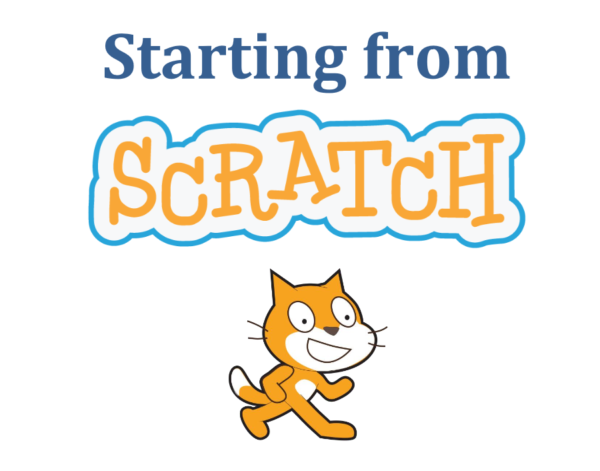The real estate industry has started using blockchain technology in a more widespread manner since the major use of smart contracts in blockchain technology. Smart contracts are self-executing agreements which are coded on the blockchain, thus automating the steps in a process, minus the use of intermediaries and increasing transaction time and transparence. With real estate getting more into adaptation in this digital transformation, smart contracts allow the opportunities for investors and property owners alike. This blog article will explain how smart contracts have impacted real estate and why they have been a huge game-changer for investment in properties.
What Are Smart Contracts?
Smart contracts are agreements written in code and stored on a blockchain, a decentralized and secure ledger technology. Smart contracts don't depend on middlemen like lawyers and brokers since they execute automatically when the conditions of a contract are met. Blockchain for smart contracts ensures all transactions are recorded securely so there will be no fraud nor unauthorized changes. The most widely used blockchain for smart contracts so far supports a wide number of applications where real estate is one of the fastest-growing areas.
The Future of Real Estate through Smart Contracts
Smart contracts come with numerous transformative benefits in real estate, where such reductions in transaction costs, turnover of properties are increased, and added safety are realized. A few of the main ways smart contracts are changing real estate transactions are discussed below:
- Faster Transactions: While traditional real estate transactions may take weeks or months, smart contracts remove most of the middlemen-traditional lawyers, mortgage providers, among others-through which transaction times can be significantly reduced. A typical duration of a real estate transaction in America is 30 to 45 days. Smart contracts can reduce that drastically to days or even hours by automating the transfer of funds and titles.
- Reduce Transaction Costs: Amongst real estate investing, huge costs are the biggest obstacle. Expenses for legal fees and even fees from a broker and administrative cost can become combined, oftentimes taking 6% or more of the sale price. The smart contract minimizes or even eliminates many costs for such high-value transactions as it does not rely on third parties.
According to Deloitte, blockchain applications such as smart contracts may reduce transaction fees by as much as 30%, thereby saving investors substantial amounts on each and every transaction.
- Improved Security and Transparency: Since blockchain is immutable, once recorded on a smart contract, it cannot be modified or altered. This, in turn, makes smart contracts very secure, with no risk of fraudulent activities. On the other hand, blockchain technology is completely transparent as anyone in the network can verify the details of the transaction. Transparency enables trust between the buyer and seller, especially in cases of cross-border transactions where otherwise, trust will not be included.
- Fractional Ownership and Increased Access: Smart contracts can be utilized in implementing fractional ownership, whereby multiple investors can own and share rights in a property. Fractional ownership offers a reduction of entry points since tiny investors can now participate with tiny investments even in the high-value properties, which otherwise would have been beyond their reach. Liquidity is added to the market also through fractional shares that may be bought and sold much easier than the whole properties. The international fractional real estate market will grow by 5.4% a year up to 2026, reaching $5.4 billion in size. Blockchain technology and smart contracts play a key role.

Real-World Use of Smart Contracts on Property
- Transfer in Property Sales: The smart contracts automate the process of transfer of properties. For instance, when a payment is sent by a buyer, ownership will automatically be transferred to him on the blockchain by the smart contract. That transfer does not have to be through middlemen and occurs fast.
- Rental Agreements: Smart contracts can be applied in handling lease agreements in rental real estate. The rent can be automated, with the exact amount released into the property owner's account every month. The smart contract can also enforce penalties or fines if terms, such as late payment fees, are not met. For example, Realtor makes use of Ethereum-based smart contracts to automatically distribute rental income from property to investors and allows owners to manage rental income streams in an efficient manner.
- Title Management: One of the biggest challenges in real estate is title fraud. Smart contracts, backed by blockchain, ensures safe storage of a property title, thereby lessening the possibility of title fraud. When there is an exchange of ownership, the blockchain update would be in real time, whereby there would be an immutable record of ownership.
- Tokenized Real Estate: Tokenization is partitioning a piece of property into more manageable tradable tokens similar to how shares are divided in a company. Tokens can be bought, which means investors get a share in the ownership of the property. Smart contracts govern the buying and selling of these tokens, making real estate investment more liquid. The tokenized real estate market will be over $1.4 trillion by 2030, with smart contracts playing a more important role in the expansion of this new model of investment.
How to Invest in Smart Contracts in Real Estate
Purchasing and selling real estate through smart contracts is now possible with how online platforms have innovatively taken blockchain technology into transactions. Here's what to do to get started in the smart contract-based real estate sector:
- Research Blockchain Platforms and Real Estate Companies: There exist several companies specializing in real estate and blockchain. Consider researching companies like Realtor or Propy, which allow users to buy fractional ownership rights in properties through smart contracts.
- Learn Legal and Regulatory Requirements: Real estate transaction is very rigid. Ensure that the platform you're using is in line with all these rules. For example, some blockchain-based platforms employ KYC and AML for regulatory compliance.
- Tokenized Property Investments: Tokenized property has promising opportunities that make even small investments possible and opens a way for portfolio diversification. Most tokens are actually back up by real assets; therefore, investors have a chance to avail all benefits of holding real estate without necessarily having a considerable amount of capital.

Smart Contracts' Potential to Contribute to Growth in Real Estate
With the novelty of smart contracts still in its infancy regarding wide-scale adoption in real estate, the scope for potential is vast. With regard to the more mature technology and clearer regulations that exist, experts think that smart contracts are going to play an even bigger role in shaping property investment into the future. Deloitte projects that by 2030, blockchain will save real estate an annual $2 billion largely because of the efficiencies of smart contracts.
The advent of Smart contracts will change the face of the real estate industry with cost savings, increased transparency, and making investment more accessible. Traditional real estate investments lead the pack, but speed, safety, and flexibility are all on the menu offered by blockchain technology. For both the investors and owners of real estate, it may open up space to understand fully smart contracts through the real estate market. When smart contracts become a new normalcy in transferring properties soon hopefully, the industry shall embrace a new developing era of efficiency and access.






